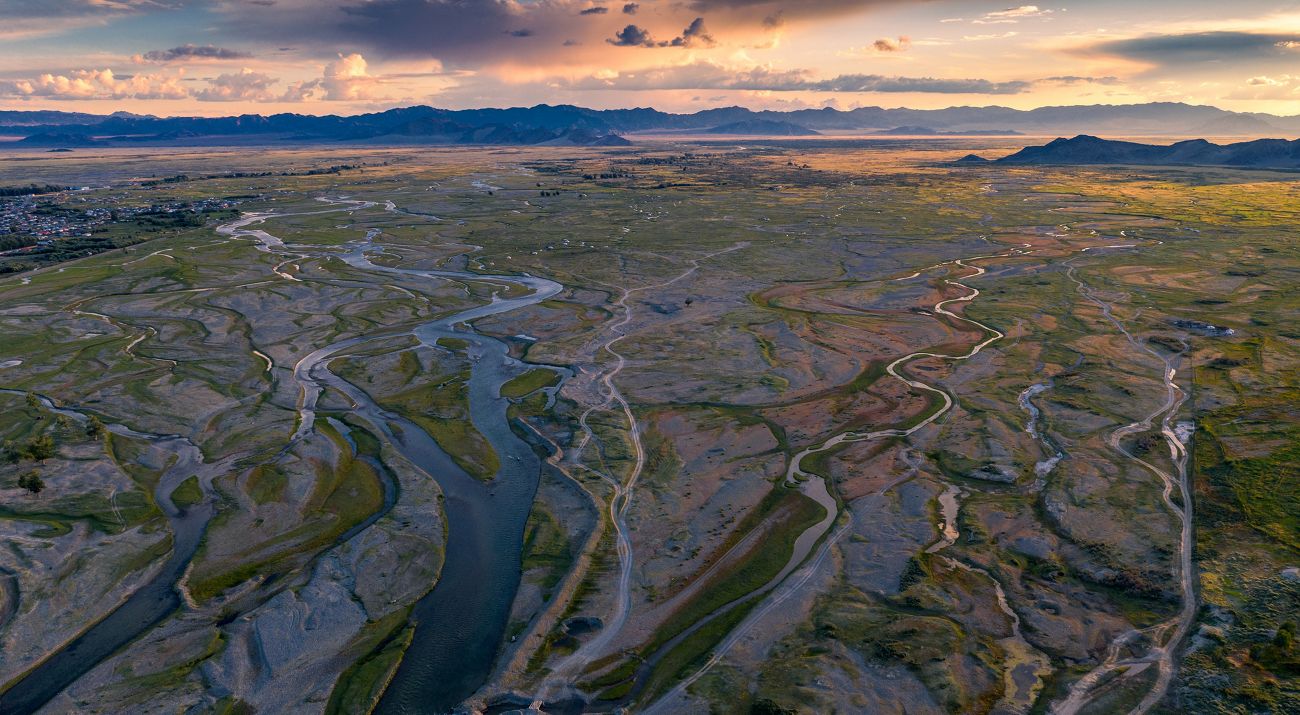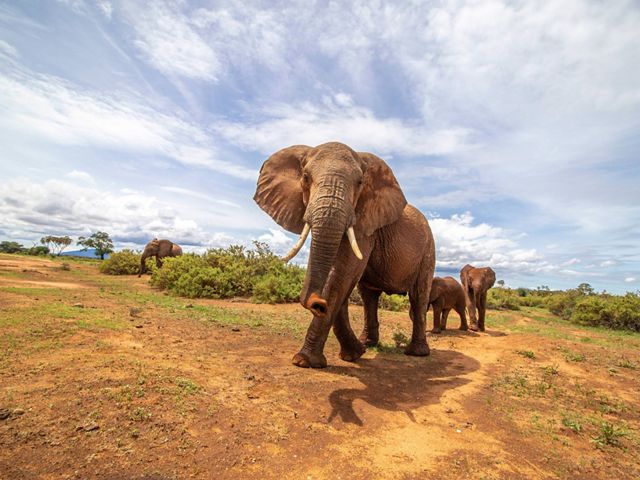Congress Greenlights Major Investment in International Conservation
Abandoned mine cleanup, fish recovery proposals also passed during lame-duck session

Media Contacts
-
Eric Bontrager
Associate Director of Communications, North America Policy
The Nature Conservancy
Phone: 703.887.0559
Email: eric.bontrager@tnc.org
A new fund to accelerate U.S. support for conservation work across the globe cleared Congress today, the latest in a jam-packed lame-duck session that saw multiple bills that will benefit nature pass with bipartisan support.
The U.S. Foundation for International Conservation Act would establish a fund to support local communities and Indigenous Peoples that manage protected and conserved areas worldwide. Investments in conserving critical habitats and other strategies are proven not only to improve the health of nature but reduce the risk of conflict across the globe.
“The stability of communities, regions and the planet are directly linked to the health and sustainability of our natural world,” said Jennifer Morris, chief executive officer of The Nature Conservancy. “The crises facing nature—such as drought, floods and loss of animal populations—are kindling for chaos. By conserving lands, waters and wildlife, we can enable a safer and more secure world.”
Quote: Jennifer Morris
“The crises facing nature–such as drought, floods and loss of animal populations–are kindling for chaos. By conserving lands, waters and wildlife, we can enable a safer and more secure world.”

Why this legislation matters
Learn how the U.S. Foundation for International Conservation Act will scale global conservation, boost U.S. security and empower local communities. See why this is a big win for people and the planet.
This bipartisan legislation was sponsored by Sens. Chris Coons, D-Del., and Lindsey Graham, R-S.C., with companion legislation from Reps. Michael McCaul, R-Texas, and Gregory Meeks, D-N.Y., in the House. In addition, the leaders of Congress’s International Conservation Caucus were instrumental in spearheading this important legislation.
Local communities and Indigenous Peoples are highly effective stewards of their natural resources, but the accelerating rate of habitat and biodiversity loss across the globe has widened the gap between the work they need to do and the available funding for them to do so. The act will provide up to $100 million each year in federal funds requiring a 2:1 private-public match for international conservation projects like those in the pipeline or identified under the Enduring Earth partnership. These U.S. investments will, hopefully, incentivize matching philanthropic and private-sector funding.
“On its current trajectory, investment in international conservation–both domestically and abroad–isn’t nearly at the level needed to match the challenges we face,” said Morris. “This act will change that trajectory, leveraging the private sector and philanthropic funding to maximize these investments’ impacts for nature and global security. We’re immensely grateful to the bipartisan, bicameral leadership in Congress over the years to get the act over the finish line. We look forward to working with the next administration to implement this critical investment in our future.”

The act came on the heels of another lame-duck win for nature. Last week, Congress approved bipartisan legislation to make it easier for “Good Samaritans” such as state agencies, non-profits and others to remediate the damage from abandoned hardrock mines. Along with restoring waterways, the Good Samaritan Remediation of Abandoned Hardrock Mines Act will also help create the enabling conditions for clean and renewable energy developers to build on former mines (to learn more, check out TNC’s Mining the Sun report).
“When clean energy is sited on former mines, it can help avoid converting green spaces for the clean energy transition,” said Morris. “But the expenses of mine cleanup liability have prevented many developers from considering these sites, leaving them a largely untapped resource across the country. The passage of this act helps set the stage for reusing hardrock mines to improve the health of communities and the planet.”
The bill was sponsored by Sens. Martin Heinrich, D-N.M., and Jim Risch, R-Idaho, with companion legislation from Reps. Celeste Maloy, R-Utah, Mary Peltola, D-Alaska, and Susie Lee, D-Nev.
Congress's approval of these and other bills (see more below) over the last few weeks aligns with a remarkable trend in recent years of U.S. government progress on climate and conservation.
“With all the political strife that seems to grapple the country, Congress’ prioritization of these bills in the final days of its session demonstrates how we can find common ground in nature,” said Morris. “As the 118th Congress comes to a close and a new Congress and administration prepares to take power, we must continue to advance policies that benefit people and nature alike.”
Other nature-focused legislation passed during the lame duck:
Reauthorization of the Upper Colorado and San Juan River Basins’ endangered fish and threatened fish recovery implementation programs.
Reauthorization of the WILD Act. The act renews the Partners for Fish and Wildlife Program, which enables wildlife and habitat conservation in all 50 states and territories, and the Multinational Species Conservation Fund, which supports the global conservation of imperiled species, including rhinos, elephants, tigers, great apes and turtles.
Legislation to designate Florida's Pensacola and Perdido bays as "Estuaries of National Significance."
The Nature Conservancy is a global conservation organization dedicated to conserving the lands and waters on which all life depends. Guided by science, we create innovative, on-the-ground solutions to our world’s toughest challenges so that nature and people can thrive together. We are tackling climate change, conserving lands, waters and oceans at an unprecedented scale, providing food and water sustainably and helping make cities more resilient. The Nature Conservancy is working to make a lasting difference around the world in 83 countries and territories (39 by direct conservation impact and 44 through partners) through a collaborative approach that engages local communities, governments, the private sector, and other partners. For more news, visit our newsroom or follow The Nature Conservancy on LinkedIn.


